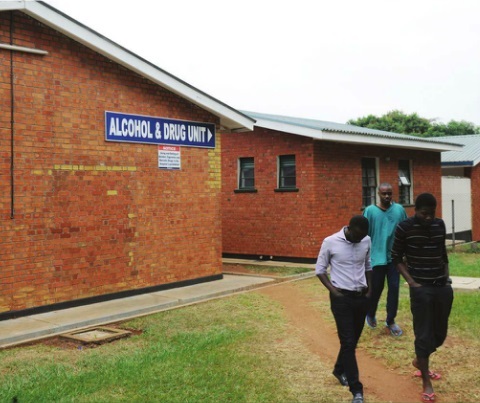

National mental health hospital offers serenity treatment to tortured souls
Healthcare in Uganda is generally underfunded. But it is worse for mental healthcare. In the 2015/16 Financial Year, health generally was allocated only 5% of the budget. Of that, mental healthcare took just 01%.
Despite the little money it receives, it is difficult to feel anything but serenity when one visits Uganda’s top mental health facility; the Butabika National Referral and Teaching Mental Hospital just outside Kampala on the edge of Lake Victoria.
The rolling well-kept field after field of green grass, shrub and flowers, and trees are strikingly soothing. The verdant greenery offers remarkable cooling shade at all times of the day. This is an old facility, opened in 1955 and old-style clay tile roofing gently mingle with modern green versatile iron-roofs on the facility staff offices, patient wards, and amenities on the sprawling 200-acre hospital. Strolling along the neat walkways feels like a walk in a nature park with birds chirping and butterflies fluttering everywhere. Butabika is nothing like any other government health facility and the man in charge, Dr. David Basangwa, says everything is deliberate.
“A clean environment promotes recovery as it gives physical and mental recovery,” says Basangwa, who is the executive director – having risen through the administrative hierarchy over a 20-year period working at the hospital.
He says as part of the treatment plan, the hospital encourages patients to move around the compound because it promotes recovery.
“This is generally known mental health information which is taught in medical school,” he says.
It is a view at odds with the perception the society has about mental illness in general and Butabika Hospital specifically. To many people in Uganda, mention of Butabika brings to mind a place of chaos. Yet in a country where most public facilities are badly run; including health facilities, Butabika stands out for its orderliness.
Place of surprises
One of the patients we met at the hospital is a medical officer who was battling an alcohol addiction. The average stay duration for such patients at the hospital is six weeks and he had spent about four when we spoke. He said even when his wife and bosses first hinted that he possibly needed to go into rehab, Butabika was never among the places he thought he would end up at. He says he dreaded it.
“In my heart I knew what it meant to be going to a government hospital,” he recalls.
Eventually, however, he was convinced to give it a try. He said all his fears were soon erased.
“Nurses here seem to have mastered one thing; that one has to be patient when dealing with the mentally sick,” he says.
He says although mental health issues in Uganda are looked at with a lot of stigma and superstition, one soon forgets them when admitted at Butabika.
Basangwa and his team appear determined to go beyond the basics of merely treating patients, ensuring their basic care needs are met, providing for their physical needs.
A visit to Uganda’s only mental health hospital reveals how psychiatrists there are handling the problem that mental illness is.
Patients and staff appear to benefit from the cool environment. Many can be seen strolling around the walkways, lying or sitting around in groups or alone in the gardens. Most of the patients are possibly suffering from epilepsy, which is the dominant recorded mental illness in Uganda.
Another large cohort of patients suffers from schizophrenia, a condition which interferes with a person’s ability to determine what is real and what is not. Patients typically hear voices or see things that are not there. They have false beliefs and fears, and can withdraw from society. Other common ailments include anxiety disorders, depression, and mania. Although alcohol and drug abuse is a big environmental factor in mental health in Uganda, very few cases are reported, according to some reports.
 The Independent Uganda: You get the Truth we Pay the Price
The Independent Uganda: You get the Truth we Pay the Price


